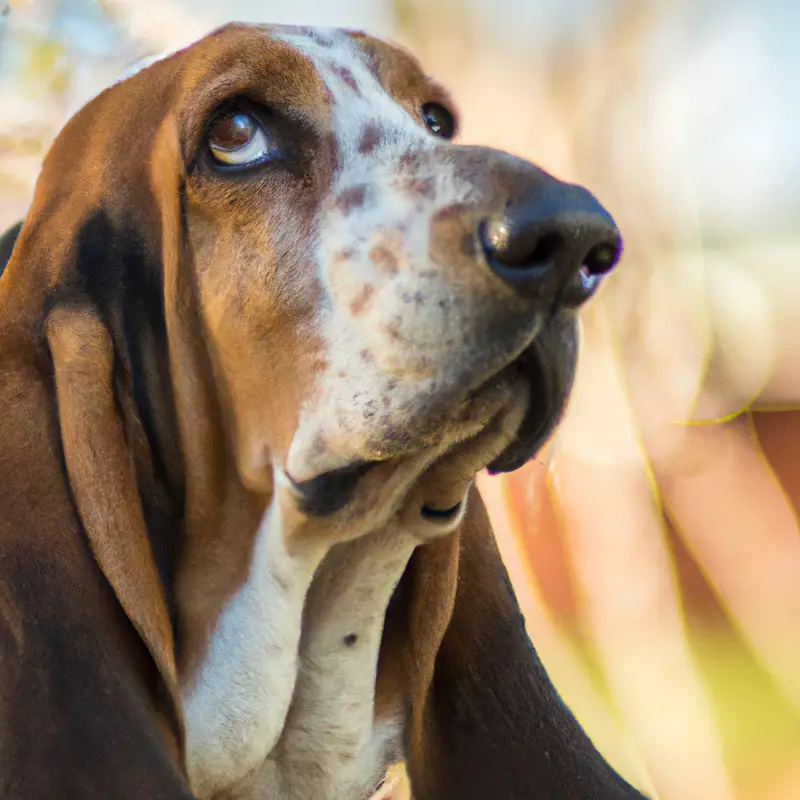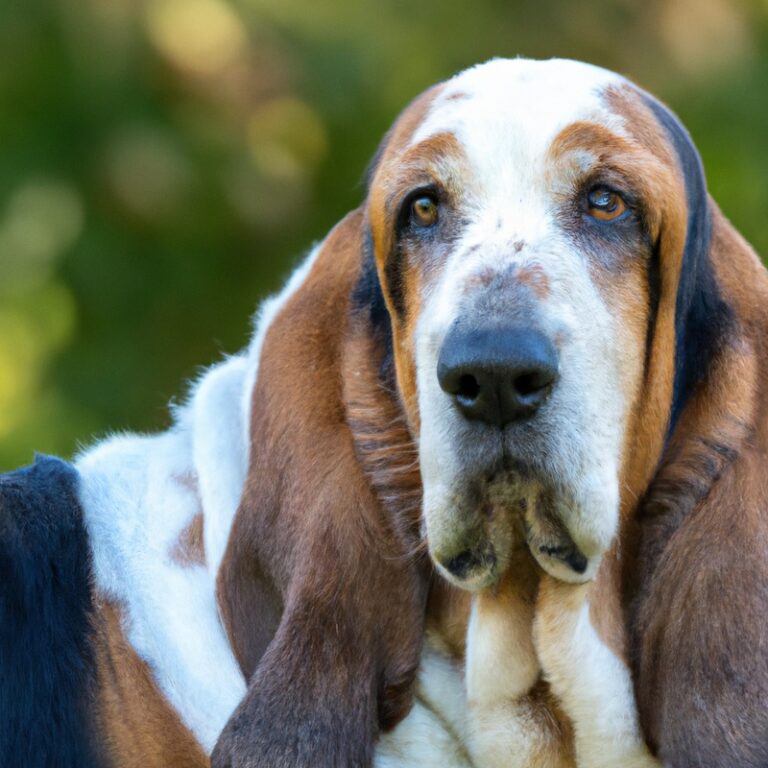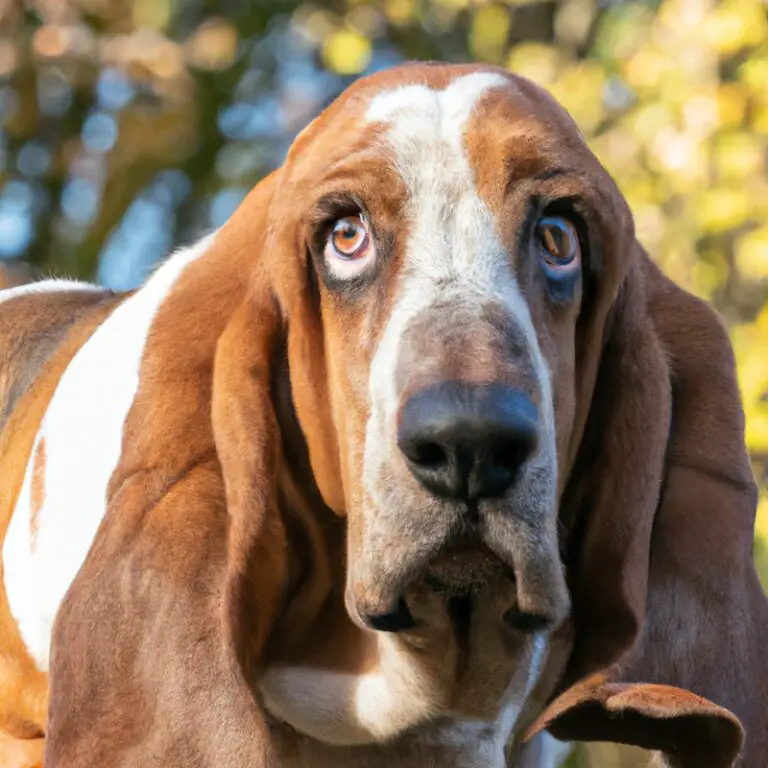Are Basset Hounds Known For Being Good With Reptiles?
Key Takeaways:
- Basset Hounds generally have a calm and tolerant nature towards reptiles.
- Their low prey drive makes them less likely to chase or harm reptiles.
- Proper socialization and training can further enhance a Basset Hound’s compatibility with reptiles.
- Individual dog temperaments may vary, so supervision is important when introducing Basset Hounds to reptiles.
Hey there! Have you ever wondered if Basset Hounds, with their droopy ears and soulful eyes, could actually be great companions for reptiles? Well, you’ve come to the right place to find out! As an expert in all things canine, I’m here to give you the lowdown on whether Basset Hounds have a natural affinity for our scaly friends.
In this article, we’ll explore the unique temperament and characteristics of Basset Hounds, their history and origin, and dive into the fascinating world of how they interact with reptiles.
So, grab your lizard buddy and let’s explore this intriguing topic together!
| Characteristics | Basset Hounds |
|---|---|
| Reptile-Friendly | No |
| Temperament | Gentle and Friendly |
| Prey Drive | High |
| Trainability | Low |
| Compatibility with Reptiles | Not recommended |
Introduction to Basset Hounds as a breed
Overview of Basset Hound temperament and characteristics
Basset Hounds are known for their gentle and friendly temperament. They are typically laid-back, sociable, and have a loving nature.
Bassets are good-natured and get along well with children and other pets.
They are also known for being patient and tolerant, which makes them great family companions. Bassets have a strong sense of smell and tend to have a stubborn streak, so consistent training and mental stimulation are important.
They have moderate exercise needs and are typically content with leisurely walks.
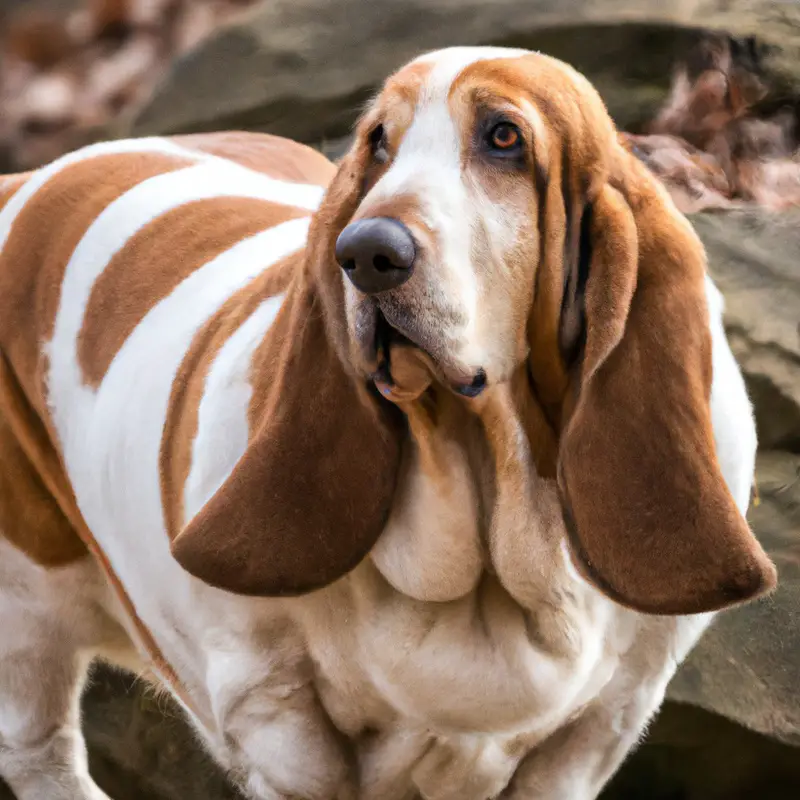
Brief history and origin of Basset Hounds
Basset Hounds have a rich history that dates back to 6th-century France.
The breed was originally developed by monks to have a keen sense of smell for hunting small game.
Over time, Basset Hounds became popular for their distinctive low-set bodies and droopy ears.
They were recognized as a breed in the 19th century and have since gained a loyal following.
Today, Basset Hounds are known for their friendly and gentle nature, making them great companions for families and individuals alike.
Basset Hounds and their interaction with reptiles
General behavior towards reptiles
Basset Hounds generally have a calm and gentle nature, which can translate to their behavior towards reptiles.
They may show curiosity towards reptiles but are usually not aggressive towards them.
However, each individual Basset Hound may have a different temperament, so it’s important to introduce them to reptiles carefully.
Owners should closely supervise their interactions and provide a safe environment for both the dog and the reptile.
Taking precautions and ensuring proper socialization can help foster a positive relationship between Basset Hounds and reptiles.

Factors influencing Basset Hounds’ interaction with reptiles
Basset Hounds’ interaction with reptiles can be influenced by several factors. One important factor is the individual dog’s temperament and personality.
Some Basset Hounds may have a higher prey drive, which can make them more interested in chasing or hunting reptiles.
Another factor is the dog’s level of socialization and exposure to reptiles from an early age. Basset Hounds that have been properly socialized with reptiles are more likely to have positive interactions with them.
Additionally, the owner’s supervision and management play a crucial role in ensuring the safety of both the dog and the reptile.
Precautions to be taken when introducing Basset Hounds to reptiles
When introducing Basset Hounds to reptiles, it’s important to take certain precautions to ensure the safety and well-being of both animals. Here are some key steps to consider:
- Separate spaces: Keep the reptile’s enclosure securely separate from the Basset Hound’s area. This prevents accidental interactions and reduces stress for both animals.
- Supervision: Always closely supervise interactions between your Basset Hound and reptile. This allows you to intervene if necessary and helps establish safe boundaries.
- Slow and gradual introductions: Introduce your Basset Hound to the reptile in a controlled and gradual manner. This allows them to become familiar with each other’s presence without feeling overwhelmed.
- Positive associations: Use positive reinforcement techniques to associate the presence of the reptile with rewards for your Basset Hound. This helps create a positive association and reduces the likelihood of negative behavior.
- Respect the reptile’s needs: Reptiles have specific needs and sensitivities. Ensure their enclosure provides the appropriate temperature, lighting, and hiding spots. Avoid excessive noise or sudden movements that could stress them out.
By taking these precautions, you can help create a safe and harmonious environment for both your Basset Hound and reptile.
Training Basset Hounds to coexist peacefully with reptiles
Importance of early socialization and training
Early socialization and training play a vital role in shaping a Basset Hound’s behavior around reptiles. By exposing them to reptiles at a young age, they become familiar with their presence and learn to coexist peacefully.
Positive reinforcement techniques, such as rewards and praise, are effective in encouraging desired behavior.
Consistency and patience are key when training Basset Hounds to respect and interact gently with reptiles. It’s important to start socialization and training early to ensure a harmonious relationship between Basset Hounds and reptiles.
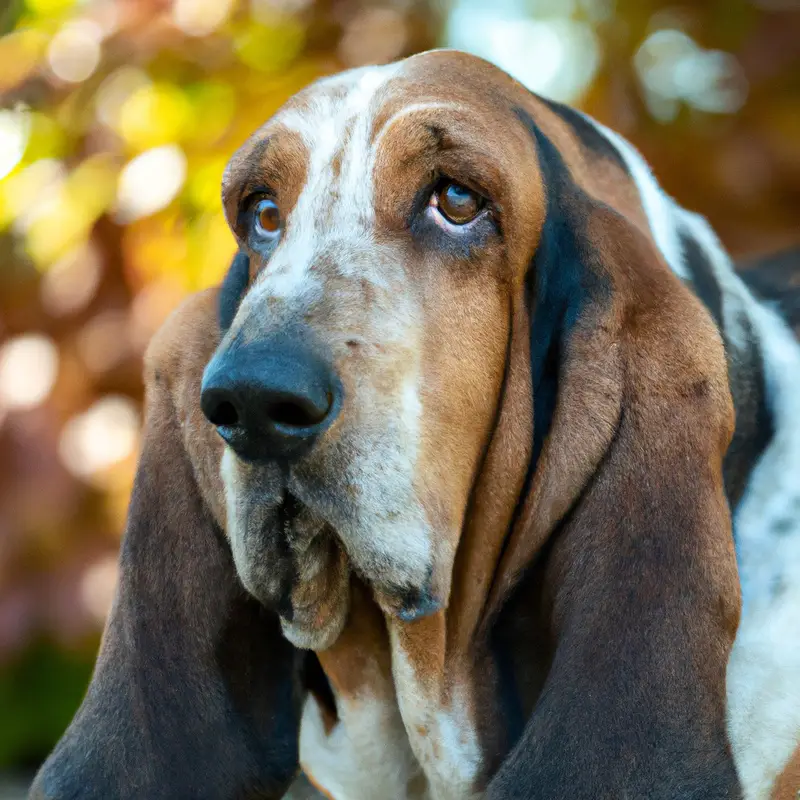
Positive reinforcement techniques for training Basset Hounds
Positive reinforcement is a highly effective technique for training Basset Hounds.
When it comes to teaching these dogs to coexist peacefully with reptiles, positive reinforcement can be used to reinforce desirable behaviors such as calmness and gentle interactions.
Rewarding Basset Hounds with treats, praise, and petting when they exhibit appropriate behavior towards reptiles helps them understand what is expected of them.
Consistency is key when using positive reinforcement, and training sessions should be short and frequent to maximize their effectiveness.
With patience and consistency, Basset Hounds can learn to peacefully coexist with reptiles.
Recommended training methods for reptile-friendly behavior
To train your Basset Hound for reptile-friendly behavior, there are a few key methods you can follow.
Firstly, start with socialization at a young age, gradually exposing your dog to reptiles in a controlled environment.
Secondly, use positive reinforcement techniques such as rewards and praise to encourage desired behavior around reptiles.
Thirdly, teach your Basset Hound basic obedience commands like “leave it” or “stay” to help establish boundaries with reptiles.
Remember, consistency and patience are key when training your dog to be reptile-friendly.
Potential challenges and risks
Basset Hounds’ hunting instincts and potential danger to reptiles
Basset Hounds have a strong hunting instinct, which can pose a potential danger to reptiles. Due to their scenting abilities and low-set bodies, they may be inclined to chase and potentially harm small reptiles like snakes, lizards, or turtles.
It is important to supervise their interactions and ensure the safety of both the Basset Hound and the reptile.
Keeping reptiles securely housed and providing separate areas for each pet can help minimize any potential risks or harm to the reptiles.
Health risks associated with reptile and dog interactions
When reptiles and dogs interact, there are potential health risks to consider. Dog bites can cause serious injuries to reptiles, leading to infections or broken bones.
Additionally, reptiles may carry bacteria such as Salmonella, which can be harmful to dogs if ingested.
It’s important to supervise interactions between dogs and reptiles closely and ensure that both species are kept safe. Regular veterinary check-ups for both pets can help identify and address any health concerns that may arise from their interactions.
Supervision and monitoring when Basset Hounds and reptiles are together
When Basset Hounds and reptiles are together, it is important to provide constant supervision and monitoring. This ensures the safety of both the dog and the reptile.
Keeping a close eye on their interactions allows you to intervene if any aggressive behavior or potential harm is detected.
Separate them if necessary and make sure they have their own designated spaces to prevent any accidents. Regularly checking for signs of stress or discomfort in either the dog or the reptile is also essential.
Conclusion
Final thoughts on Basset Hounds’ compatibility with reptiles
Final thoughts on Basset Hounds’ compatibility with reptiles: Basset Hounds can generally be compatible with reptiles, but it ultimately depends on the individual dog and the specific reptile. Bassets are known for their friendly and laid-back nature, which can make them more tolerant of reptiles.
However, it’s important to introduce them slowly and monitor their interactions closely.
Basset Hounds have a strong hunting instinct, so it’s crucial to never leave them unsupervised with reptiles. Remember to always prioritize the safety and well-being of both your Basset Hound and your reptile companion.
Key takeaways for potential Basset Hound owners interested in reptiles
If you’re a potential Basset Hound owner who’s also interested in reptiles, here are some key takeaways to consider:
- Basset Hounds generally have a laid-back and friendly temperament, which can make them more likely to get along with reptiles compared to some other dog breeds.
- However, it’s important to remember that each individual Basset Hound will have its own unique personality and preferences, so there are no guarantees of how any specific dog will behave around reptiles.
- Early socialization and training are crucial for ensuring that your Basset Hound learns how to coexist peacefully with reptiles and other animals.
- It’s essential to supervise any interactions between your Basset Hound and reptiles for the safety of both animals.
- If you have smaller or more delicate reptiles, it’s important to take extra precautions to ensure that your Basset Hound does not accidentally harm or stress them.
Remember, every situation is unique, and it’s always a good idea to consult with a professional trainer or a veterinarian if you have any concerns or questions.
Final Verdict
Basset Hounds can indeed be compatible with reptiles, but it requires careful management and supervision.
Their generally laid-back and friendly temperament makes them more likely to coexist peacefully with reptiles.
However, their hunting instincts and potential health risks must be taken into consideration.
Early socialization, positive reinforcement training, and responsible monitoring are essential to ensure a safe and harmonious environment for both the Basset Hound and reptiles.
With proper precautions and proper introduction, Basset Hounds can become reptile-friendly companions.

